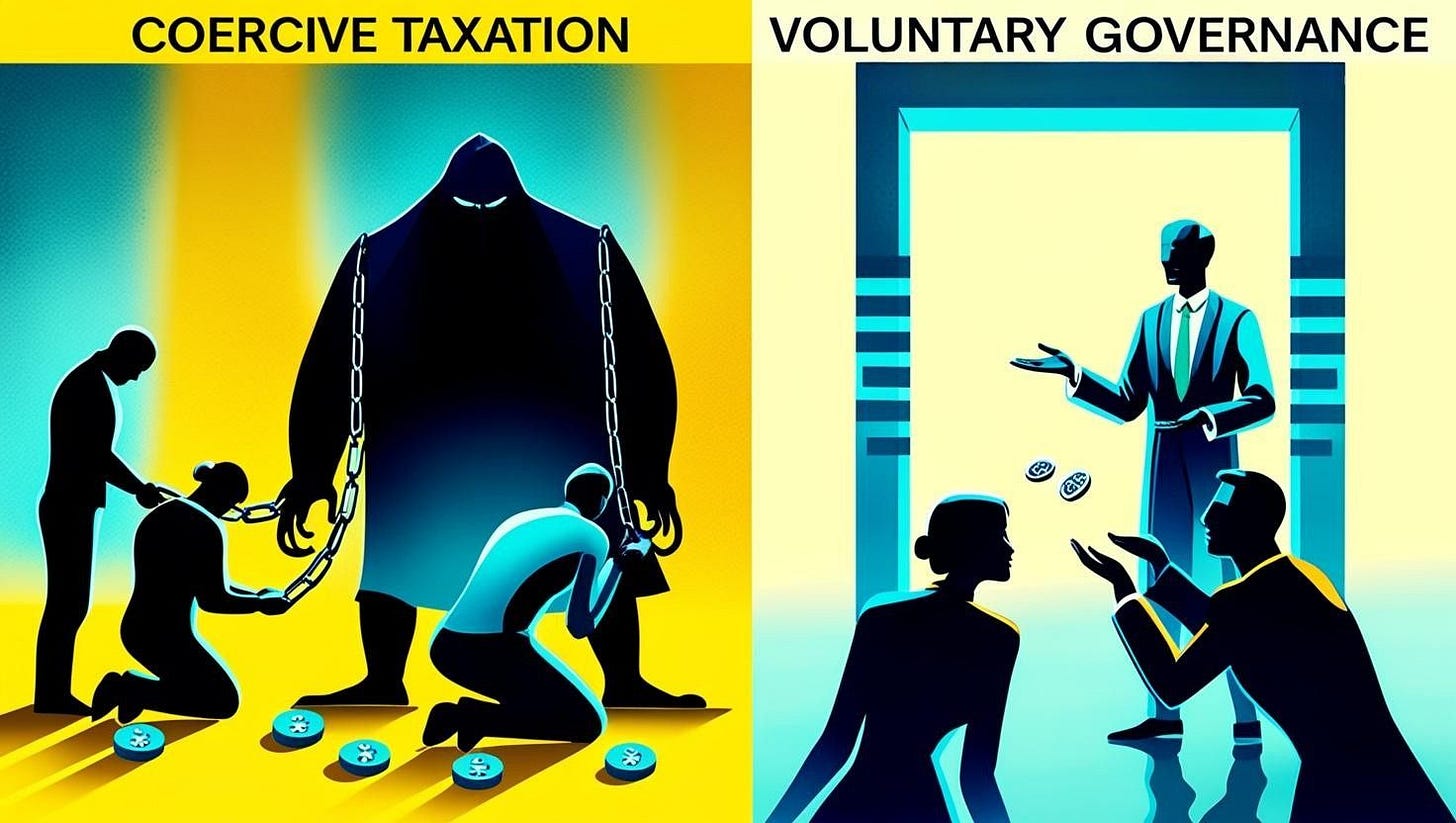Morazán was built on the vision of Spencer Heath and Spencer MacCallum, who believed taxation was inherently immoral. They envisioned all public goods—so-called "government services"—being provided through voluntary payments, much like any other good. Under this model, a landlord providing essential services would include their cost in the price of rent rather than imposing additional taxation. While Morazán’s founders sought to follow this model, a necessary compromise was made due to national government requirements.
Though ZEDEs are semi-autonomous, the Honduran government mandated taxation. Even though the ZEDE was responsible for infrastructure, security, and dispute resolution, the government required a share of tax revenue, demanding 12% of what was collected.
To balance this requirement while maintaining a competitive advantage, Morazán set its tax rate at just 5% of residents’ and businesses’ income—the lowest rate the government would approve. Given that individual income tax rates in Honduras can reach 25%, this represents a significant advantage. For commercial tenants, the tax rate is 5% of net profit, though they may choose an alternative of 2% of total revenue, which simplifies calculations and can be beneficial for certain businesses.
A Simplified and Transparent System
Beyond its low rates, Morazán offers something rare in today’s world—tax simplicity. The income tax is the only tax in Morazán. There are no property taxes, no business license fees, and no sales taxes.
Additionally, residents and businesses report and pay their taxes directly to the ZEDE, not the national government. The ZEDE submits only the total tax revenue collected, ensuring financial privacy for individuals and businesses. If the Honduran government wants information on a specific person, it must request it by name, preventing bureaucratic fishing expeditions.
This contrasts sharply with the burdensome taxation systems in most countries. One of the most frustrating aspects of income taxation is not just the amount paid but the time wasted complying with complex rules. Even with standard deductions, individuals spend significant time determining the best way to file. By contrast, ZEDEs have the authority to create straightforward tax codes that eliminate unnecessary complexity.
More Money, More Choices
Because taxation in Morazán is minimal and doesn’t attempt to fund all aspects of life, residents keep more of what they earn. This allows them greater personal choice in how to secure services like healthcare, education, and insurance. Rather than being forced into government systems, individuals decide how to manage their own risks, savings, and long-term needs.
While Morazán operates on free-market principles, it does maintain a community fund to assist residents who face genuine hardship in medical care, education, or other essential needs. Unlike traditional welfare states bogged down by inefficiency and bureaucracy, Morazán’s fund is managed at the local level, ensuring that aid reaches those who truly need it.
Low-Tax Jurisdictions and Financial Freedom
Across the globe, low-tax jurisdictions provide models for economic freedom. More than 5,000 special economic zones exist worldwide, each offering tax or regulatory advantages. However, most of these zones remain bound by bureaucratic constraints designed to protect entrenched interests rather than the public. Morazán, in contrast, lowers both the tax and regulatory burden as much as possible, allowing businesses and individuals to thrive.
Low-tax jurisdictions—sometimes called "tax havens"—offer many advantages, including asset protection, financial privacy, and business-friendly legal frameworks. By lowering taxes and reducing unnecessary regulation, these jurisdictions foster investment, innovation, and overall economic prosperity. While critics argue that tax havens enable avoidance, they fail to acknowledge how overbearing tax systems often drive wealth and business elsewhere.
That said, being associated with a low-tax jurisdiction can sometimes attract scrutiny, as international pressures may seek to impose additional regulatory burdens. However, as more countries experiment with economic liberalization, the concept of taxation as an unavoidable cost is beginning to erode.
Morazán vs. Other Free Cities
Morazán isn’t alone in its innovative approach. Other emerging free cities and economic zones explore different funding models that reduce or eliminate taxation. Próspera, another Honduran ZEDE, has taken a different approach, targeting a wealthier international market.
According to Próspera’s official website, residents pay an annual fee—$260 for Hondurans and $1,300 for foreigners—rather than traditional property or local taxes. Individual income is taxed at an effective rate of 5% with a cap of 10%, while business revenues are taxed at 1% and retail sales at 2.5%.
Próspera also offers an e-residency program for $130 per year, which allows non-residents to own or lease property, form legal entities, and operate businesses with minimal bureaucracy. These features make Próspera an attractive option for entrepreneurs seeking regulatory clarity and financial efficiency.
As more free cities emerge, we will see further experimentation with voluntary funding models. Some, like entrecomms, incorporate the cost of public services directly into rent. Others, like Próspera and free private cities, charge flat residency fees. Each model represents a step toward governance that aligns payment with actual services, offering more choice and transparency than coercive taxation.
The Future of Non-Coercive Public Finance
Taxation has long been considered inevitable, but new governance models challenge that assumption. Instead of financing government through force, free cities are proving that services can be provided through voluntary payments and transparent agreements.
Morazán and similar jurisdictions provide a proof of concept—a world where people can pay for governance the same way they pay for any other service. By reducing taxation to its lowest functional level, these cities enable both economic freedom and social responsibility, creating a model that may one day replace the outdated systems of nation-states.
If voluntary governance continues to grow, the world may one day look back on coercive taxation as an unnecessary relic of the past.




Great read!
I just visited Prospera briefly. Just long enough to take the tour. I wish I could have seen Morazan as well.
I really hope a thousand more versions of these free cities are tried in a hundred more places. The future is freedom.